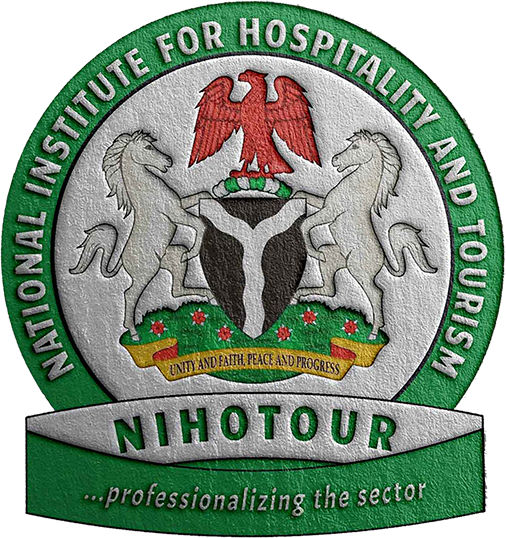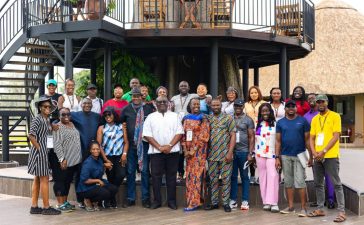
In a bid to reposition Nigeria’s hospitality and tourism industry, the National Institute for Hospitality and Tourism (NIHOTOUR) is laying down critical foundations to regulate the sector, enforce training, and build a credible data system. Under the current leadership, NIHOTOUR is pushing for mandatory certification of practitioners and accredited training institutions through a Public-Private Partnership (PPP) framework.
At the heart of this new direction is a simple but powerful goal: professionalize the industry by ensuring that no individual practices without proper training and certification.
“We understand the critical role of the stakeholders by engaging with them at all levels,” the Director-General explained. “Right now, we are registering operators — from hotel and restaurant management to travel agencies and training schools — to structure the industry from the top down.”
Certified Training & CPD: A Sector-Wide Shift
NIHOTOUR is introducing Continuous Professional Development (CPD) training programs targeted at management and mid-level professionals. Craft-level training, on the other hand, will be outsourced to accredited private institutions.
“We’re focusing on CPD and skill-based training,” said the DG. “If you don’t train through a certified institution, you won’t be allowed to practice.”
This approach aims to address the huge skills gap observed in the sector, especially in event coordination and service delivery — as witnessed during the recent Doorbar Festival, which, despite drawing massive attendance, lacked professional coordination.
Data First: A Strong Foundation for Policy
With no prior central data on tourism operators, the DG initiated a voluntary registration drive and has now moved toward enforcing mandatory registration through legislative backing. This step is crucial for evidence-based planning.
“We have onboarded 2,700 people so far,” the DG noted, “but we need legislation to make registration compulsory. We’re also collaborating with state agencies and national data bodies to protect and manage this information properly.”
The institute is working with stakeholders like FCCRS, EFTAN, and LANS to ensure no operator is left unaccounted for. This will also support tourism’s contribution to Nigeria’s GDP, which the DG aims to raise to 9–10%.
Stakeholder Collaboration & Grassroots Training
NIHOTOUR is also collaborating with organizations like NAPTTO and private actors such as Gate Centre to promote tourism at the grassroots level. These bodies are involved in showcasing state potentials, creating awareness, and supporting local certification efforts.
Madam Nihotour of NAPTTO added:“From Taste of Kwara to Explore Kwara, we’re identifying state-level potentials. We need training committees and advocacy to pull off impactful tourism events.”
Through these efforts, NIHOTOUR is empowering states and institutions to become not just participants but drivers of tourism development.
Conclusion: A New Era of Accountability
This is a significant step toward professionalizing Nigeria’s hospitality industry. With structure, data, training, and certification as the building blocks, NIHOTOUR is reshaping a previously unregulated sector into one that is transparent, efficient, and globally competitive.
As the DG stated, “This is a road NIHOTOUR has never worked on. But now, we’re not just working it — we’re building it.”





